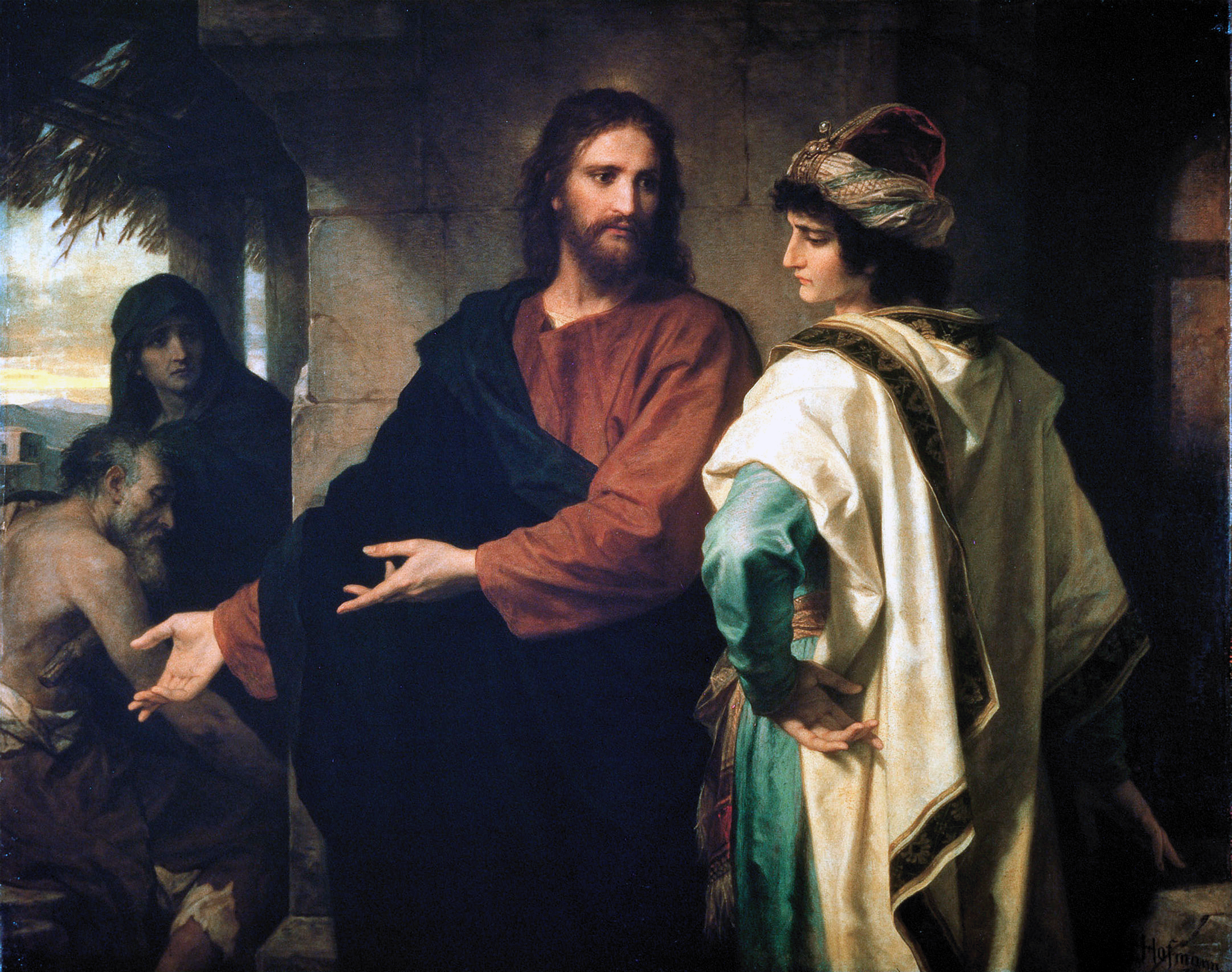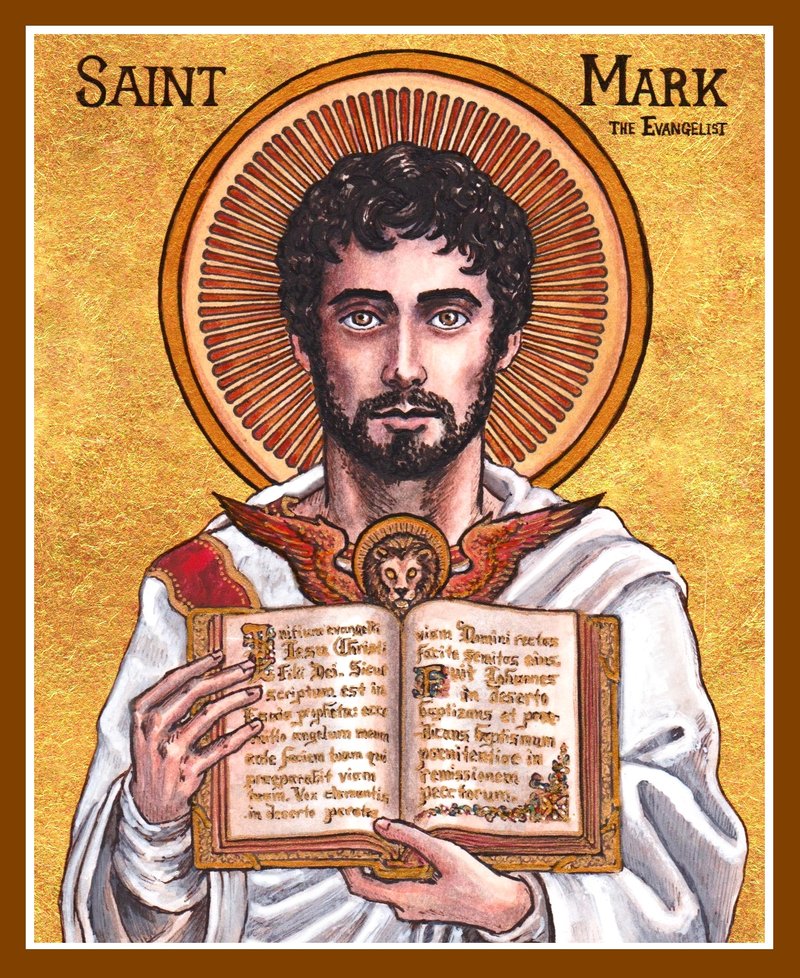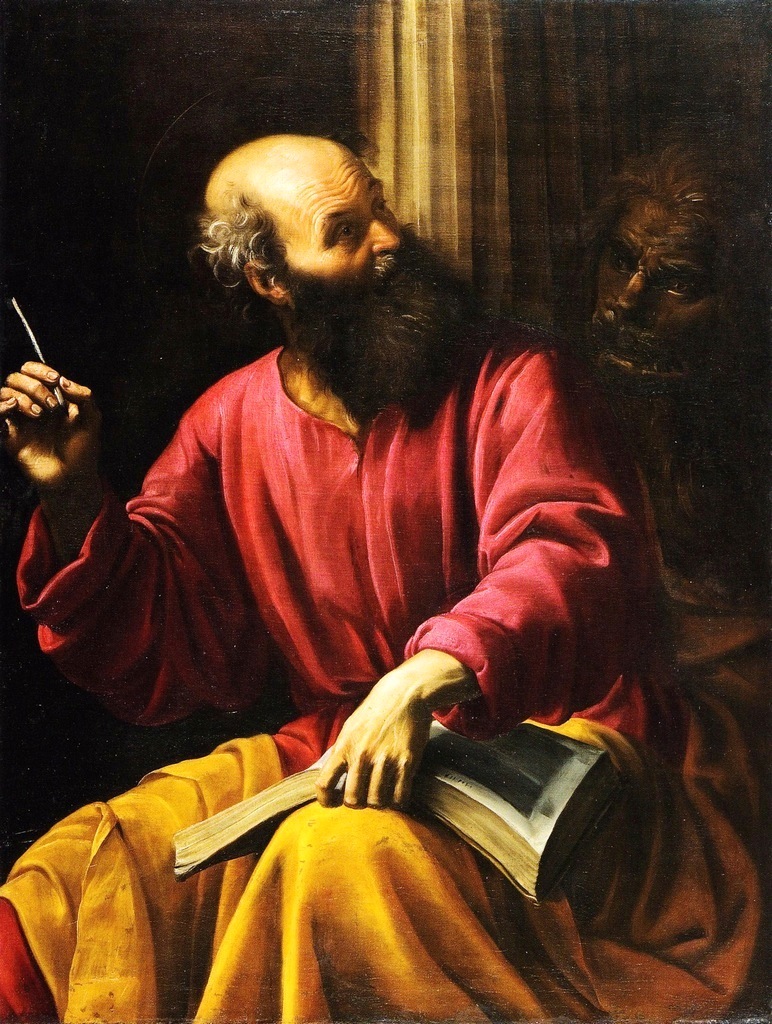
-by Joel Peters
“Perhaps the most striking reason for rejecting this doctrine is that there is not one verse anywhere in the Bible in which it is taught, and it therefore becomes a self-refuting doctrine.
Protestants often point to verses such as 2 Timothy 3:16-17 or The Apocalypse (Revelation)22:18-19 in defense of Sola Scriptura, but close examination of these two passages easily demonstrates that they do not support the doctrine at all.
“In 2 Timothy 3:16-17 we read, “All scripture, inspired of God, is profitable to teach, to reprove, to correct, to instruct in justice, that the man of God may be perfect, furnished to every good work.” There are five considerations which undermine the Sola Scriptura interpretation of this passage:
1) The Greek word ophelimos (“profitable”) used in verse 16 means “useful” not “sufficient.” An example of this difference would be to say that water is useful for our existence – even necessary – but it is not sufficient; that is, it is not the only thing we need to survive. We also need food, clothing, shelter, etc. Likewise, Scripture is useful in the life of the believer, but it was never meant to be the only source of Christian teaching, the only thing needed for believers.
2) The Greek word pasa, which is often rendered as “all,” actually means “every,” and it has the sense of referring to each and every one of the class denoted by the noun connected with it. (2) In other words, the Greek reads in a way which indicates that each and every “Scripture” is profitable. If the doctrine of Sola Scriptura were true, then based on Greek verse 16, each and every book of the Bible could stand on its own as the sole rule of faith, a position which is obviously absurd.
3) The “Scripture” that St. Paul is referring to here is the Old Testament, a fact which is made plain by his reference to the Scripture’s being known by Timothy from “infancy” (verse 15). The New Testament as we know it did not yet exist, or at best it was incomplete, so it simply could not have included in St. Paul’s understanding of what was meant by the term “scripture.” If we take St. Paul’s words at face value, Sola Scriptura would therefore mean that the Old Testament is the Christian’s sole rule of faith. This is a premise that all Christians would reject.
Protestants may respond to this issue by arguing that St. Paul is not here discussing the canon of the Bible (the authoritative list of which books are included in the Bible), but rather the nature of Scripture. While there is some validity to this assertion, the issue of canon is also relevant here, for the following reason: Before we can talk about the nature of Scripture as being theopneustos or “inspired” (literally, “God-breathed”), it is imperative that we identify with certainty those books we mean when we say “Scripture”; otherwise, the wrong writings may be labeled as “inspired.”
St. Paul’s words here obviously took on a new dimension when the New Testament was completed, as Christians eventually considered it, too, to be “Scripture.” It can be argued, then, that the Biblical canon is also the issue here, as St. Paul – writing under the inspiration of the Holy Spirit – emphasizes the fact that all (and not just some) Scripture is inspired. The question that begs to be asked, however, is this: “How can we be sure we have all the correct writings?” obviously, we can only know the answer if we know what the canon of the Bible is. Such a question poses a problem for the Protestant, but not for the Catholic, as the latter has an infallible authority to answer it.
4) The Greek word artios, here translated “perfect,” may at first glance make it seem that the Scriptures are indeed all that is needed. “After all,” one may ask, “if the Scriptures make the man of God perfect, what else could be needed? Doesn’t the very word ‘perfect’ imply that nothing is lacking?”
Well, the difficulty with such an interpretation is that the text here does not say that it is solely by means of the Scriptures that the man of God is made “perfect.” The text – if anything – indicates precisely the opposite to be true, namely, that the Scriptures operate in conjunction with other things. Notice that it is not just anyone who is made perfect, but rather the “man of God” – which means a minister of Christ (cf. 1 Tim. 6:11), a clergyman.
The fact that this individual is a minister of Christ presupposes that he has already had training and teaching which prepared him to assume his office. This being the case, the Scriptures would be merely one item in a series of items which make this man of God “perfect.” The Scriptures may complete his list of necessary items or they may be one prominent item on the list, but surely they are not the only item on his list nor intended to be all that he needs.
By way of analogy, consider a medical doctor. In this context we might say something like, “The Physician’s Desk Reference [a standard medical reference book] makes our General Practitioner perfect, so that he may be ready to treat any medical situation.” Obviously such a statement does not mean that all a doctor needs is his PDR. It is neither the last item on his list or just one prominent item. The doctor also needs his stethoscope, his blood pressure gauge, his training, etc. These other items are presupposed by the fact that we are talking about a doctor rather than a non-medical person. So it would be incorrect to assume that if the PDR makes the doctor “perfect,” it is the only thing which makes him so.
Also, taking this word “perfect” as meaning “the only necessary item” results in a biblical contradiction, for in James 1:4 we read that patience – rather than the Scriptures – makes on perfect: “And patience hath a perfect work; that you may be perfect and entire, failing in nothing.” Now it is true that a different Greek word (teleios) is used here for “perfect,” but the fact remains that the basic meaning is the same. Now, if one rightly acknowledges that patience is clearly not the only thing a Christian needs in order to be perfect, then a consistent interpretive method would compel one to acknowledge likewise that the Scriptures are not the only think a “man of God” needs in order to be perfect.
5) The Greek word exartizo in verse 17, here translated “furnished” (other Bible versions read something like “fully equipped” or “thoroughly furnished”) is referred to by Protestants as “proof” of Sola Scriptura, since this word – again – may be taken as implying that nothing else is needed for the “man of God.” However, even though the man of God may be “furnished” or “thoroughly equipped,” this fact in and of itself does not guarantee that he knows how to interpret correctly and apply any given Scripture passage. The clergyman must also be taught how to correctly use the Scriptures, even though he may already be “furnished” with them.
Consider again a medical analogy. Picture a medical student at the beginning of internship. He might have at his disposal all the equipment necessary to perform an operation (i.e., he is “thoroughly equipped” or “furnished” for a surgical procedure), but until he spends time with the doctors, who are the resident authorities, observing their techniques, learning their skills, and practicing some procedures of his own, the surgical instruments at his disposal are essentially useless. In fact, if he does not learn how to use these instruments properly, they can actually become dangerous in his hands.
So it is with the “man of God” and the Scriptures. The Scriptures, like the surgical instruments, are life-giving only when properly used. When improperly used, the exact opposite results can occur. In one case they could bring physical ruin or even death; in the other case they could bring spiritual ruin or even spiritual death. Since the Bible admonishes us to handle rightly or rightly divide the word of truth (cf. 2 Tim. 2:15), it is therefore possible to handle incorrectly or wrongly divide it – much like an untrained medical student who incorrectly wields his surgical instruments.
Regarding The Apocalypse (Revelation) 22:18-19, there are two considerations which undermine the Sola Scriptura interpretation of these verses. The passage – almost the very last in the Bible – reads: “For I testify to every one that heareth the words of the prophecy of this book: If any man shall add to these things, God shall add unto him the plagues written in this book. And if any man shall take away from the words of the book of this prophecy, God shall take away his part out of the book of life, and out of the holy city, and from these things that are written in this book.”
1) When these verses say that nothing is to be added to or taken from the “words of the prophecy of this book,” they are not referring to Sacred Tradition being “added” to the Sacred Scripture. It is obvious from the context that the “book” being referred to here is Revelation or The Apocalypse and not the whole Bible. We know this because St. John says that anyone who is guilty of adding to “this book” will be cursed with the plagues” written in this book,” namely the plagues he described earlier in his own book, Revelation. To assert otherwise is to do violence to the text and to distort its plain meaning, especially since the Bible as we know it did not exist when this passage was written and therefore could not be what was meant. (3)
In defense of their interpretation of these verses, Protestants will often contend that God knew in advance what the canon of Scripture would be, with Revelation being the last book of the Bible, and thus He “sealed” that canon with the words of verses 18-19. But this interpretation involves reading a meaning into the text.
Furthermore, if such an assertion were true, how is it that the Christian knows unmistakably that Revelation 22:18-19 is “sealing” the canon unless an infallible teaching authority assures him that this is the correct interpretation of that verse? But if such an infallible authority exists, then the Sola Scriptura doctrine becomes ipso facto null and void. Circular.
2) The same admonition not to add or subtract words is used in Deuteronomy 4:2, which says, “You shall not add to the word that I speak to you, neither shall you take away from it: keep the commandment of the Lord your God which I command you.” If we were to apply a parallel interpretation to this verse, then anything in the Bible beyond the decrees of the Old Testament law would be considered non-canonical or not authentic Scripture – including the New Testament! Once again, all Christians would reject this conclusion in no uncertain terms. The prohibition in Revelation 22:18-19 against “adding,” therefore, cannot mean that Christians are forbidden to look to anything outside the Bible for guidance.”
Love,
Matthew
(2) W. E. Vine [Protestant Author], Vine’s Expository Dictionary of New Testament Words (McLean, VA: MacDonald Publishing House, n.d.), p. 387. Cf. St. Alphonsus Liguori, An Exposition and Defense of all the Points of Faith Discussed and Defined by the Sacred Council of Trent; along with a Refutation of the Errors of the Pretended Reformers, etc. (Dublin: James Duffy, 1846), p. 50.
(3) While all the books of the New Testament are considered to have been written by the time St. John finished The Apocalypse (Revelation), they were not formally identified as “the Bible” until much later on.


















